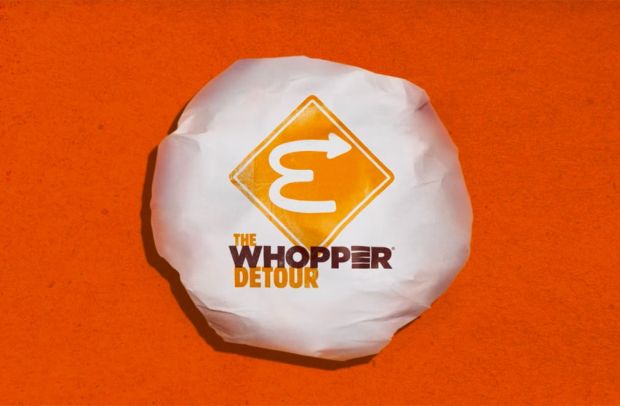
The Best Titanium Grand Prix Ever?

Dan Wieden described the Titanium when he introduced it in 2005 as a “WTF: Where did that shit come from?” moment. It could be the best ever explanation of why ‘Whopper Detour’ merited a Grand Prix; but then again, this could be the best Grand Prix ever.
After five or more years of ‘tech this’ and ‘tech that’ and ‘data is everything’, Titanium came through with a real game changer that married technology and data and creativity in a way that was absolutely right for the brand, has wit and personality of Whopper proportions, a long term impact on sales, and an ROI of 37-to-1.
The Titanium Grand Prix is supposed to show the way forward, and ‘Whopper Detour’ does exactly that: it’s exactly what you are looking for when you take your place on the Titanium jury at Cannes, and this year, it’s the kind of work we found.
Going back to the “WTF: Where did that shit come from?” moment, it’s something we’d all like to experience more often. It’s the kind of breakthrough you dream of making every morning you turn up for work. We should not put the blame on clients’ briefs - Burger King’s brief was to grow downloads of its four-year-old app in a way that tied to business outcomes - the result could easily have been totally forgettable. Instead, the relationship demanded the work that pushes things forward. It is only by having the right two-way relationships where you can get to those magic moments together - away from the ‘business as usual’ evaluation of creative ideas.
When it comes to creative that stands out, we have to keep believing in ‘business as unusual’, in the possibility of creating an environment where the unexpected can flourish. More often than not, this happens within long-term relationships, when you have had time to build up trust and create a space to play outside of the usual processes.
This is the kind of relationship that Nike and Wieden+Kennedy so clearly enjoy and has also won them a Grand Prix at Cannes this year. ‘Dream Crazy’ has probably had more impact on culture than any other campaign in the competition, and it was certainly a game-changer in terms of pushing forward ideas on racism and brand activism, even if it wasn’t quite ‘WTF?’ enough to push it to the top of the Titanium category. At the end of the day, it shows the power of keeping it simple - a single tweet immortalised on giant OOH sites has ultimately added $9 billion to the company’s value.
Burger King’s brilliance was in disguising its use of technology with a playful idea that made it impossible for people to ignore. The fact that it manifested in a long-term data play for Burger King was a crucial part of its triumph, but it’s worth noting that the other Titanium winners were a brilliant mix of work that shows game-changing ideas can be manifested in any media, as long as it’s the right choice and the right message.
Every Titanium award raises the bar in its own way: Gazeta in Poland challenged the way young guys view women; Libresse erased global taboos around vulvas and the very use of the word itself: vulva; Xbox embraced and empowered disabled gamers; and Nike defied Trump on issues of race.
Now more than ever, our industry and brands have the power to achieve the kind of impact and outcomes in society that institutions and governments cannot. This year’s Cannes has very much been about brand purpose and brand activism, so it seems slightly out of whack that what has become perhaps the most coveted Lion of all has gone to work that sells burgers – but when it’s this good, you simply can’t ignore it. The 2019 Home of the Whopper is Cannes Lions.
Malcolm Poynton is global chief creative officer at Cheil Worldwide













